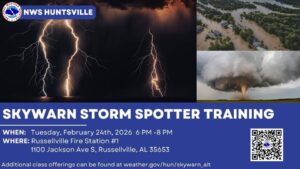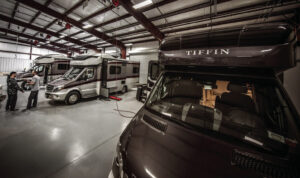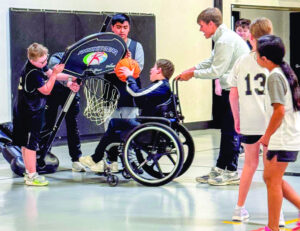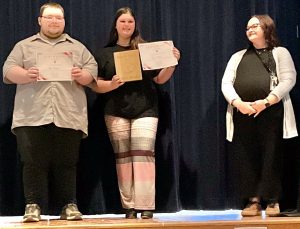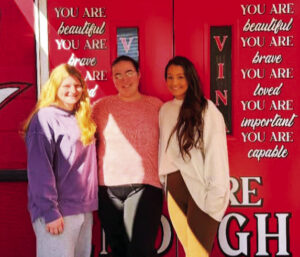Heart for healing: Nurse’s career takes flight with Air Evac
FRANKLIN LIVING— One afternoon Laura Kroeger was hard at work in her career as an ICU nurse when a colleague, who was a flight nurse, made an off-hand suggestion: that she should become a flight nurse herself. Her answer: “You know – I should. It’s something I’ve always wanted to do.”
That was how Kroeger’s ascent began.
The mother of four had spent her entire career in nursing, a passion sparked when she was young by her grandfather, who was a surgeon. “He was never at family functions – he was always late, or we would run by the hospital. I can remember being a little girl waiting outside the OR door while he was doing surgery, waiting for him to finish so we could see him for a few minutes,” Kroeger said. She found her own way into the medical field, choosing greater flexibility in hours as nurse. “I think maybe it’s a type of personality. I’ve always enjoyed caring for people and caring for things,” said Kroeger, who described herself as the “mothering type” even as a child. “I’ve always enjoyed doing things for others.”
After high school Kroeger enrolled in the Columbia State Community College nursing program in Columbia, Tenn., and went on to earn her Bachelor of Science in nursing from American Sentinel University. Following her graduation in December 2002, she took the required state board exams and went right to work.
Her career has run the gamut, from her start as a medical-surgical nurse, to a cardiac cath lab nurse, to working in medical device sales – “I was really interested in the technical aspect of the pacemakers and ICDs. It was just another aspect of cardiac nursing that I wanted to take a shot at.” That ability to pursue a variety of paths is part of what she loves about the field. “You can move around and do a little bit of everything.”
Kroeger, however, took that to an even higher level than most when she decided to pursue flight nursing. Although she said she was intimidated by the 24-shift and especially wondered how it would work with raising her children, she decided to broach the idea with husband Matt. “I went home that night and said to my husband, ‘What do you think about me going to work at Air Evac?’ He said, ‘If you want to do it, go for it.’”
What came next was months of credentialing to become approved to take to the skies.
“It’s not an easy role to get into. It’s very competitive. So it took about six months to a year for me to get an interview and get a job,” Kroeger said. During that time it was easy to get discouraged. “I applied for a job right in my hometown, and I wasn’t even considered.” But she kept pursuing her new dream, continuing to improve her understanding and knowledge of what a flight nurse needed to know while she waited for the right opportunity.
One evening in 2017, her opportunity finally arrived. “It was late at night, 8:30 or 9, and the manager called,” Kroeger said, recalling the moment she finally got that long-awaited job offer. “I was so excited. My husband was right there when I was on the call, but my son – who was 14 at the time – was in his bedroom already in bed … I said ‘Hudson, I’ve got the job!’ He gave me a big hug and said ‘Mom, you deserve it.’ He was just as excited for me as I was.”
With Air Evac Lifeteam – which was established in 1985 and today is part of Global Medical Response – Kroeger works a unique schedule: every other 24 hours for three shifts, a 12-hour shift and then seven or eight days off. Air Evac operates more than 140 helicopter air ambulance bases; Kroger reports to the base in Lawrenceburg, Tenn., which is about an hour commute – an hour she said is helpful for getting in the right headspace at the beginning of a workday and decompressing afterward.
A fight crew includes a nurse, a paramedic and a pilot who work together cohesively to respond to emergency calls as well as hospital-to-hospital transports. Crew members always work together on the same schedule, which means a high level of synergy among the three. “We almost don’t have to talk because we know what the other one is going to do, but we’re really good at communicating and getting a game plan together,” Kroeger said. “We’re always on our toes.”
A typical 24-shift starts with meeting with the crew rotating off to review the past 24 hours. Next Kroeger and her team will inventory the helicopter, making sure it is fully stocked with all needed medications and supplies, including blood products. While waiting for any calls to come in, they take care of other responsibilities like computer work, continuing education, chart review and even housekeeping tasks like cleaning the base, doing laundry and cooking meals, as the base is essentially their second home.
“I’ve got a trunk I keep there that has my bedding, and I go in with a backpack and a change of clothes. I leave my boots and my helmet there,” Kroger said.
The Lawrenceburg base’s response area might seem vast to some. Responding to a call could take from three to four hours, from the time the crew leaves the base to the time it returns. Kroeger is accustomed to flying as far as Fayette and Tuscaloosa to Memphis and Nashville.
The most challenging part of the job is being away from her family. In addition to Hudson, now 16, her children include stepdaughters Chelsi, 15, and Chana, 14, as well as youngest son Crews, 8. She said Crews has the hardest time with her schedule and is frequently sad when she’s gone. “It hurts your heart a little bit,” Kroeger said. “We are first responders. We work holidays, we work nights, we work weekends … Santa doesn’t always get to come Christmas morning, and the Easter bunny comes without me every year.”
It’s a sacrifice, however, she feels is worth it because of the difference she is able to make, especially in rural communities, where a trip in a ground ambulance might take hours. “For us to be able to get there and provide rapid care and rapid access – that’s the best part of the job. You’re truly saving lives,” Kroeger said. The same as any first responder, “we see the worst of the worst. You try not to bring it home, but I think everybody probably brings it home to an extent … It’s the hardest calls you remember the most, whether they are life lessons or absolutely heartbreaking. There are calls you never forget.”
The Kroegers moved to Russellville in March 2018 from Fayette to shorten Kroeger’s commute as well as establish themselves in a warm, friendly community. “We really love the school system and the small-town feel,” Kroeger said.
When Kroeger is “off the clock” for a seven-day stint, family time takes priority. They enjoy hiking, camping and traveling, and Kroeger said they are all “river junkies.” “We’re always on the water. We all wakeboard.” Kroeger also stays active with CrossFit five to six days a week – “It’s my coping mechanism and my stress reliever for sure” – and they often travel to visit her family’s farm in Lawrenceburg on Sundays.
As to her future, Kroeger said she hopes to continue as a flight nurse as long as she can, but when she’s ready to leave the skies for good, she would love to teach nursing or perhaps pursue a master’s in business administration.
PHOTO BY MARIA CAMP


